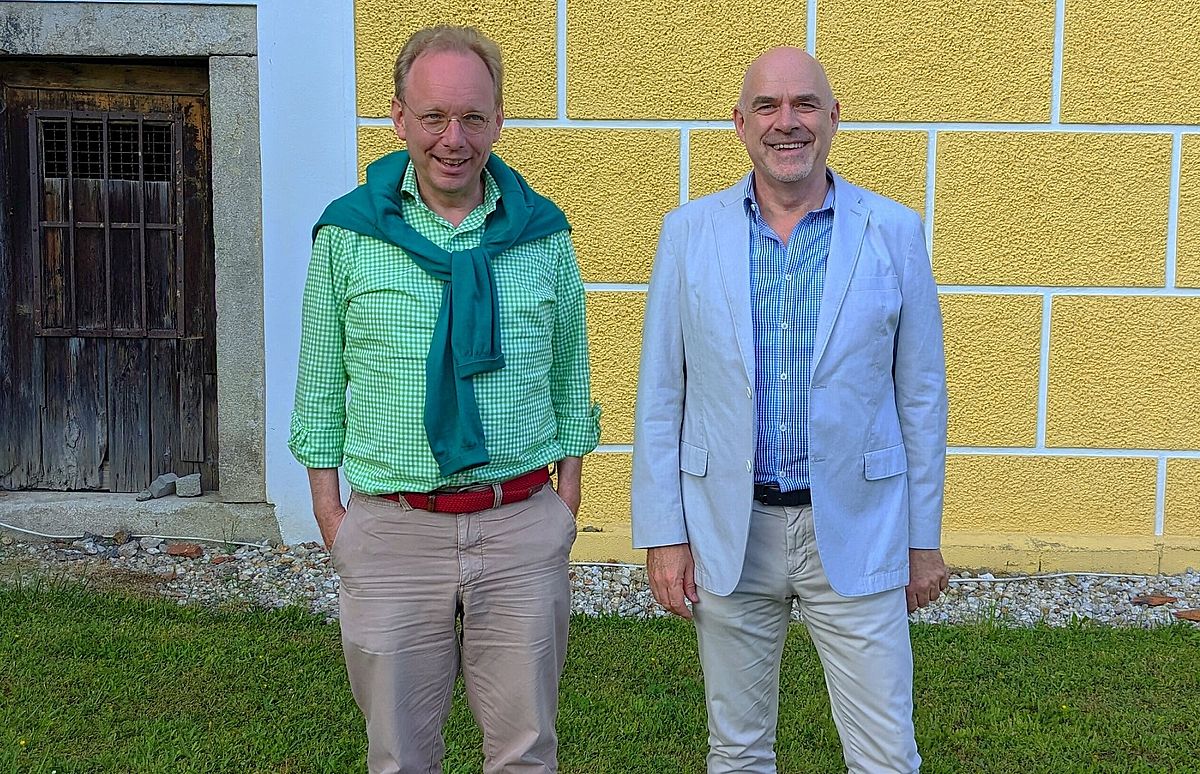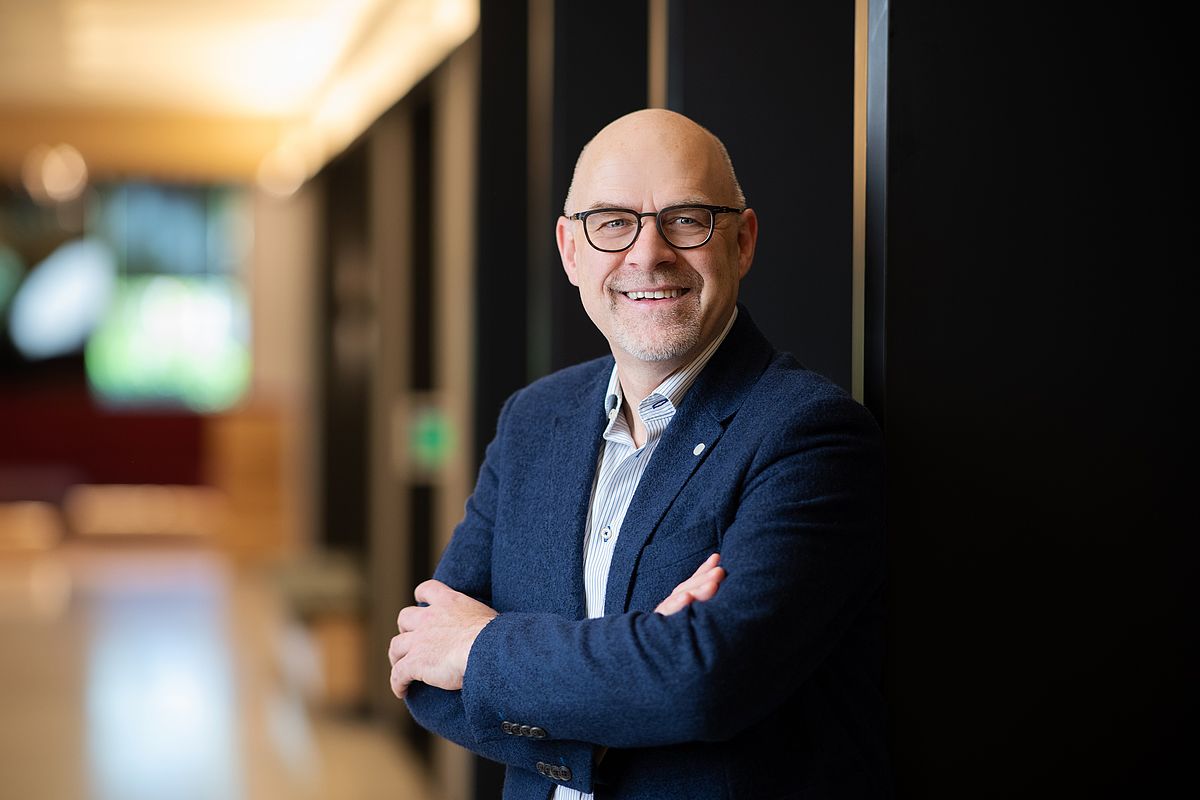Rooftop view of Hong Kong. Photograph: Colourbox
In his capacity as associate professor at the Chinese University of Hong Kong, where he heads the Obligations Lab Asia, and as adjunct associate professor at Monash University in Melbourne (Australia), Professor Normann Witzleb is an expert in privacy and data protection law, tort law and comparative law. The purpose of his sojourn at the Passau International Centre for Advanced Interdisciplinary Studies (PICAIS) as a visiting academic in June and July 2023 is to conduct research at the Chair of Public Law, Media Law and Information Law held by Professor Kai von Lewinski.
What motivated you to undertake the long journey from Hong Kong and Melbourne to Passau?
That was an easy decision to make. Passau is where I started my studies (far too) long ago, and vivid memories of the city have stayed with me to this day. Actually, my entire career in the Anglo-Saxon world of law started out in Passau, as it was from here that I left for London as an exchange student – and common law hasn't let go of me since. The connection with Passau was put on hold for a while until I was given another opportunity to meet colleagues and students from the city in my capacity as Associate Dean (International and Engagement) of Monash Law. Not only do my host, Mr von Lewinski, and I share the same research interests, we also did an earlier DAAD project together. The PICAIS fellowship was the perfect way to revitalise my connection to Passau and make new contacts.
What is your typical day as a fellow like?
The fellowship programme offers me the ideal combination of being bound up with activities of the Chair and enjoying a "long-line lead". For most researchers in the humanities and social sciences, contiguous time to pursue one's own projects outside of routine university work is one of the scarcest resources to come by. I am making use of this time here. What sets Passau apart, in my book, is its welcoming spirit, the interesting and high-calibre colleagues, the ease of access all around as well as the remarkable expertise and facilities available – and in the evening, after a hard day's work, there's always an ice cream parlour or beer garden beckoning you to drop in for the occasional visit.
Privacy protection is increasing in importance all over the world
What is your research project at PICAIS about? What are the main objectives of your research project?

Professor Kai von Lewinski and Professor Normann Witzleb. Image reproduced with permission from the rights holder.
I study data protection law aspects in the use of artificial intelligence. Data streams have long become global, but there is still much to be done before we have internationally harmonised data protection rules. The EU's laws and legislative projects have been influential internationally in this respect. I research the extent to which these regulations could serve as a model or frame of reference for potential reforms in the legal systems of the Asia-Pacific region, including Australia and Hong Kong, two countries that are currently looking for direction. Obviously, as with all legal comparisons, you need to remember that new laws only work if they are adapted to local economic, political or culture specificities.
In your opinion, how important is privacy and data protection in the age of AI, especially when it comes to the Asia-Pacific region?
Privacy protection is increasing in importance all over the world. We can tell because data protection laws are being rolled out in an increasing number of legal systems (in over 160 according to the latest figures). We all have noticed that data-intensive applications have become an indispensable feature of economic, administrative and private life. In Germany, data protection has always been taken seriously. Many governments outside of Europe used to perceive data protection rights as an obstacle to doing business and preferred weak rules instead. Now they have begun to realise that trust in the security of sensitive data and in decent data protection standards helps to enhance acceptance of new applications in society. And that in turn helps the digital economy.
Rooftop view of Passau. View of the Veste Oberhaus. Photograph: Colourbox
What are some of the cultural or social habits that you have encountered in Passau and/or Bavaria and that surprised you?
It's nice to be able to rediscover Passau as a visitor. Compared to before, I find that, in summer, life seems to happen on the streets and squares even more than used to be the case. There are tables and chairs everywhere, and both locals and visitors to Passau seem to be enjoying the sun and heat to the max. To me, the city has changed in a positive way. It has become more colourful, vibrant and easy-going – at least that's my impression after a few weeks of living here.
Do you have any favourite place in Passau that you will miss once you leave?
As far as I'm concerned, the view you have of the old city centre from the Veste Oberhaus is hard to beat. I coaxed my family into joining me by telling them that Passau is like Hong Kong: you're always near the water, you're surrounded by mountains, and you always have a terrific view over the city’s rooftops.
Professor Kai von Lewinski
What does the internet mean for geographically limited legal systems?
What does the internet mean for geographically limited legal systems?






![[Translate to English:] [Translate to English:]](https://www.digital.uni-passau.de/fileadmin/_processed_/8/f/csm_AdobeStock_311119597_VoD22_2000px_42ce72fba5.jpg)